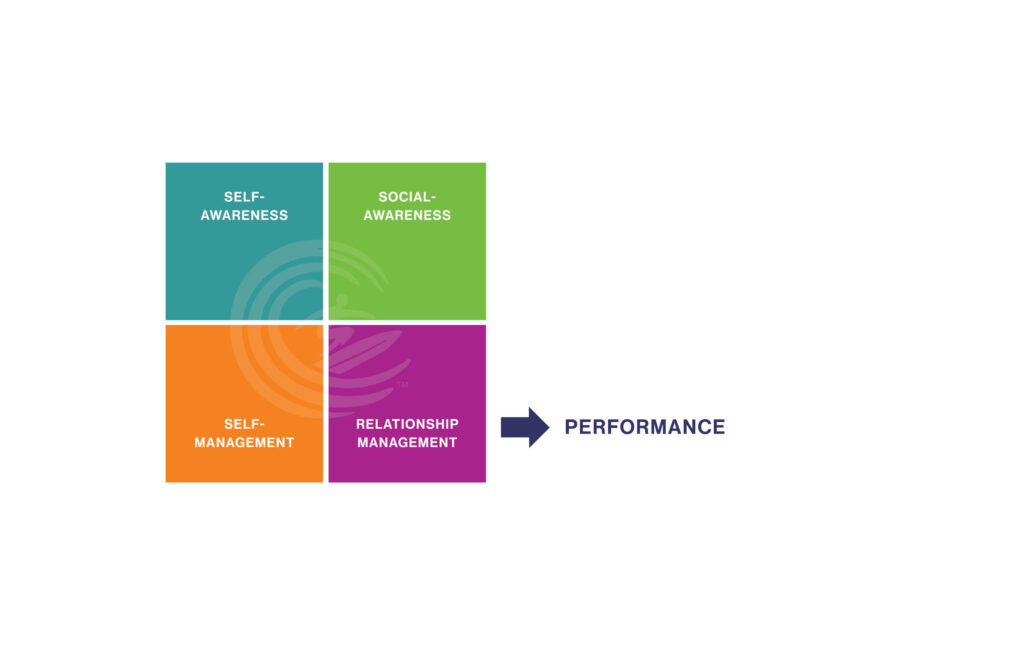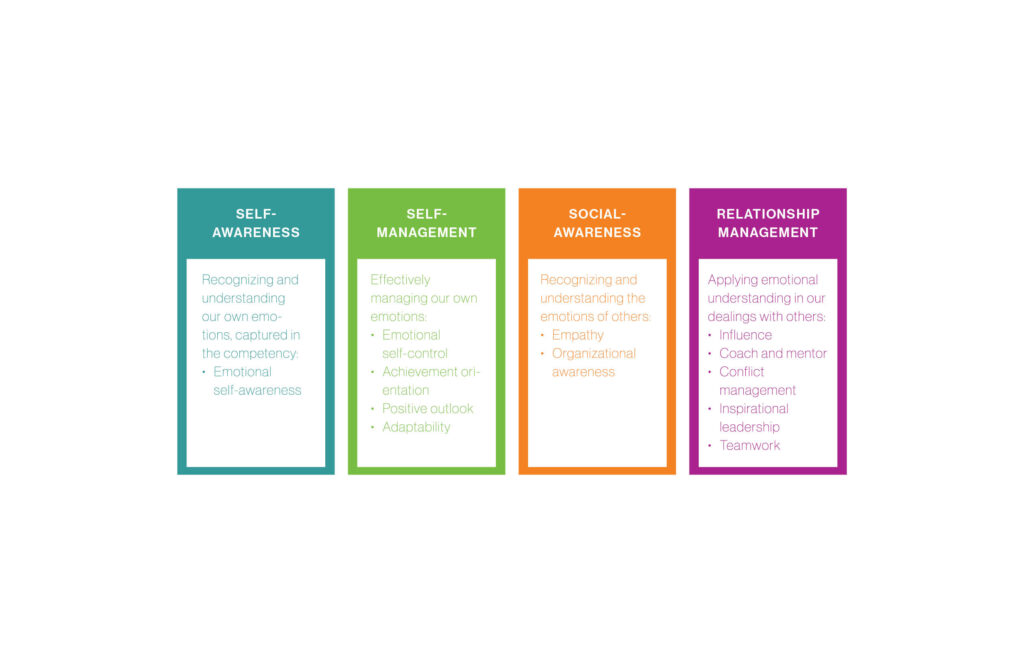Widely used and sometimes misunderstood, emotional intelligence or EQ has become a barometer for self-assessment and misused for self-judgement. Here are a few answers to questions frequently about emotional intelligence.
What is emotional intelligence, aka EQ?
It’s shorthand for “emotional and social intelligence.” Emotional intelligence is the capacity for recognizing our own feelings and those of others, for motivating ourselves, and for managing emotions effectively in ourselves and others. An emotional and social competency is a learned capacity, based on emotional intelligence, which contributes to effective performance at work—and in life.
Ok, what the heck are competencies?
Competencies are the knowledge, skills, abilities and behaviors that contribute to individual and organizational performance. Knowledge is information developed or learned through experience, study or investigation. Skill is the result of repeatedly applying knowledge or ability. Ability is an innate potential to perform mental and physical actions or tasks. Behavior is the observable reaction of an individual to a certain situation. The target proficiency level for each competency will vary based on an individual’s position and the organization’s needs.
EQ is comprised of four areas:

You can observe how someone is demonstrating EQ by their actions and their behaviors, which drive their performance.
There are 12 competencies within the four areas of EQ.

Is there any more you can tell me about this?
This sounds complicated, why should I care about this?
The difference between average and outstanding performance is often due to EQ. According to Richard Boyatzis, a distinguished professor at Case Western University and former CEO of McBer & Co., “most of the characteristics that differentiate outstanding performers are these things that we call social and emotional competencies.”
This may sound daunting. The good news for everyone is that skills, knowledge and behaviors can be learned and practiced. For example, self-awareness. Bill George, a professor of leadership at Harvard Business School, and former CEO of Medtronic cites self-awareness as the starting point of leadership. In fact, individuals who demonstrate emotional self-awareness are also likely to consistently demonstrate an average of 10 other EQ competencies.
I fold mindfulness training into my coaching recipes because self-awareness is that fundamental to EQ, and mindfulness is one of the best ways to develop self-awareness. Research published in Nature Neuroscience backs this up, finding that a short daily mindfulness practice leads to changes in the structure of the brain that enhances self-awareness. Mindfulness training enables you to enlarge your awareness of what’s going on in your own mind. This helps you notice and manage your emotions, a second EQ competency. It also helps you understand the emotions and reactions of those around you, so you can co-create better relationships and lead with more impact.
The clients I have coached [ testimonials ] report improved EQ and improved relationships both at work and at home, after embarking on mindfulness-based coaching. Some have reported truly transformative growth by focusing on what they need to learn, supported by brief but regular mindfulness practice.
Do you have additional questions on EQ? Please drop me a line.
